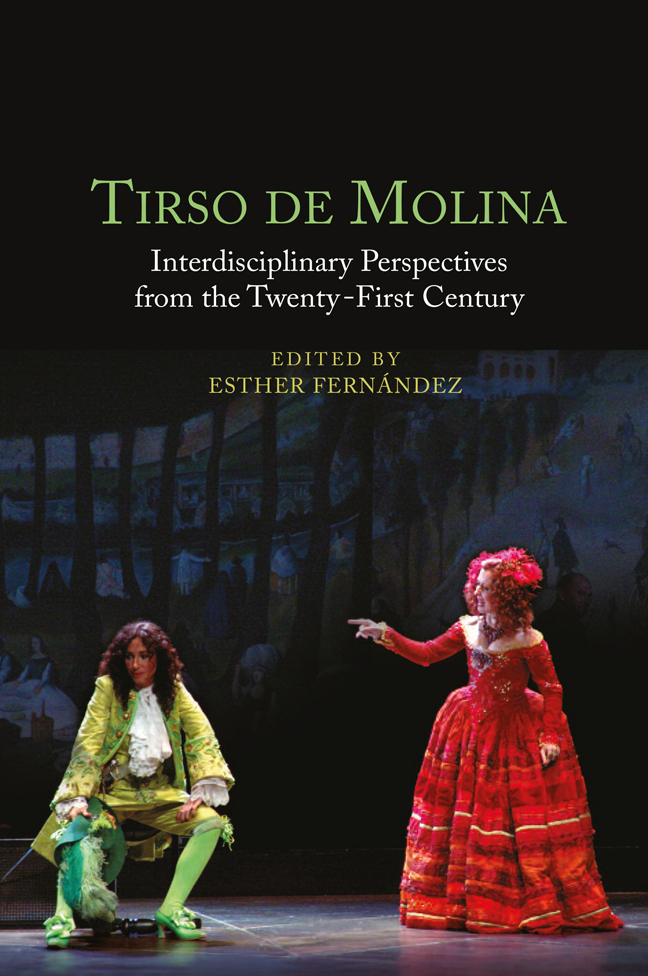13 - Tirso Goes Underground
Published online by Cambridge University Press: 02 March 2024
Summary
A global pandemic, a migration crisis, gambling, inflation, sexual ambiguity, poverty, wars, natural disasters, political corruption, sex abuse scandals, and identity theft are not only topics of today but themes that Tirso de Molina dealt with in his plays in the 1620s. From the study of the history of daily life, this chapter explores the underground world of early seventeenth-century Madrid in the following urban plays by Tirso de Molina: Marta la piadosa [Marta the Divine] (1614), Don Gil de las calzas verdes [Don Gil of the Green Breeches] (1615), La villana de Vallecas [The Peasant Girl from Vallecas] (1618), El amor médico [Love the Doctor] (1620), La celosa de sí misma [Jealous of Herself] (1623), Por el sótano y el torno [Through the Cellar and the Hatch] (1623), Los balcones de Madrid [The Balconies of Madrid] (1624), No hay peor sordo [No One is More Deaf than He Who Won’t Hear] (1626), Desde Toledo a Madrid [From Toledo to Madrid] (1626), La huerta de Juan Fernández [Juan Fernández’s Garden] (1634), En Madrid y en una casa [In Madrid and in a House] (1636), and Bellaco sois, Gómez [Gomez, You are a Scoundrel] (1641). Along with the growth and grandiosity of the main urban centers in Imperial Spain, where an intense cultural life was flourishing and millions were spent on luxurious festivals that attracted famous artists and travelers, there were social realities of misery and disenchantment, that Tirso staged in these plays. Spaces and objects carried a social meaning, evident to the contemporaneous playhouse audience, though hard for us to comprehend today. A view of the city and its periphery as being repellent arose in Tirso’s theater, where experience of the space was connected to ideas of violence, economics, politics, religion, and sexuality. The Friar stressed the negative aspects of city life, and urban space became foundational as a stage for new perceptions such as the ideas of filth associated with a lack of hygiene that offered diverse interpretations of urban and bodily odors. Natural disasters such as recurrent flooding, pandemics and plagues, bad eating habits, marginal language, duels and robberies, muddy, dirty streets, scarce harvests, homelessness, and brothels displaying the ugliness and diseased condition of prostitutes – all were shown in these plays.
- Type
- Chapter
- Information
- Tirso de MolinaInterdisciplinary Perspectives from the Twenty-First Century, pp. 186 - 205Publisher: Boydell & BrewerPrint publication year: 2023



